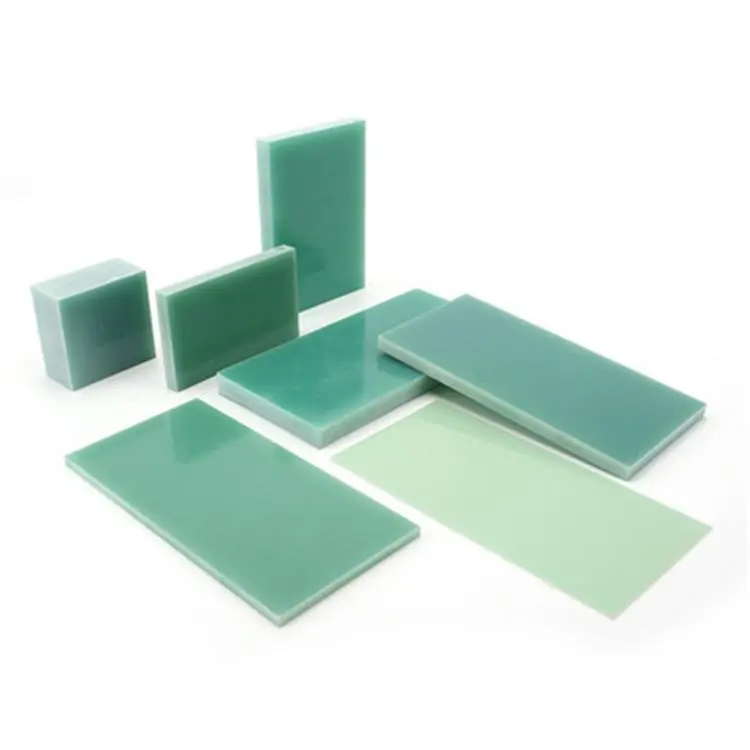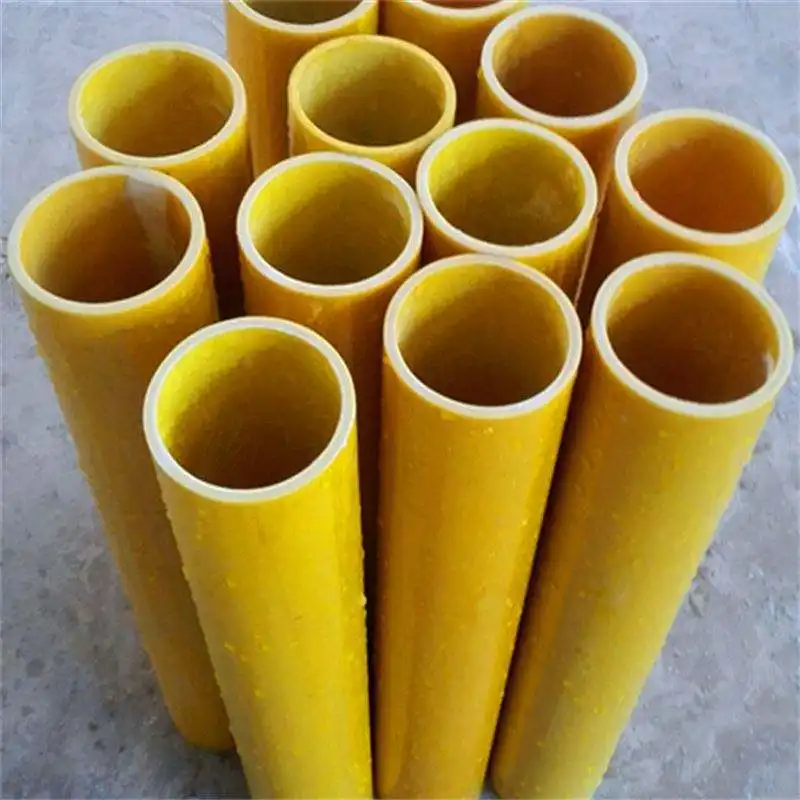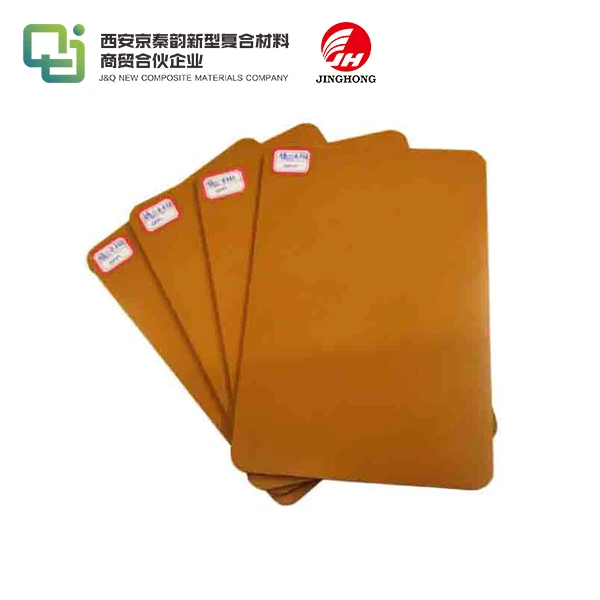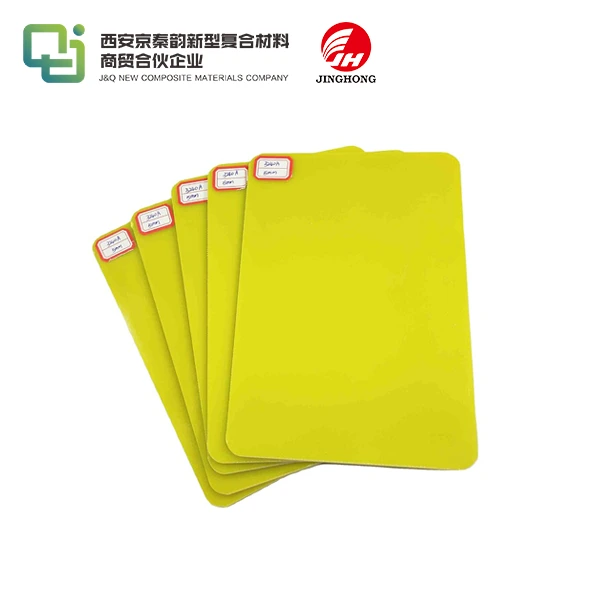What are the applications of FR4 epoxy resin sheets?
2024-10-17 12:00:53
FR4 epoxy resin sheets are versatile materials that have found their way into numerous industries due to their exceptional properties. These sheets, composed of flame-retardant glass-reinforced epoxy resin, offer a unique combination of strength, durability, and electrical insulation. In this comprehensive guide, we'll explore the diverse applications of FR4 epoxy resin sheets and delve into the reasons behind their widespread adoption across various sectors.
Electrical and Electronics Industry Applications
The electrical and electronics industry is perhaps the most prominent user of FR4 epoxy resin sheets. These materials have become indispensable in the production of various components and devices.
Printed Circuit Boards (PCBs)
FR4 epoxy resin sheets serve as the foundation for printed circuit boards, which are crucial components in almost all electronic devices. The material's excellent electrical insulation properties, combined with its mechanical strength, make it ideal for PCB manufacturing. FR4 sheets provide a stable substrate for mounting electronic components and creating intricate circuit patterns.
Insulation Panels
In high-voltage applications, FR4 epoxy resin sheets are utilized as insulation panels. Their superior dielectric properties help prevent electrical breakdown and ensure the safe operation of power distribution equipment. These panels are often found in switchgear, transformers, and other electrical infrastructure components.
EMI/RFI Shielding
Electromagnetic interference (EMI) and radio frequency interference (RFI) can wreak havoc on sensitive electronic equipment. FR4 epoxy resin sheets, when combined with conductive materials, can create effective shielding enclosures. These enclosures protect electronic devices from external electromagnetic disturbances, ensuring reliable performance in various environments.
Aerospace and Defense Applications
The aerospace and defense sectors rely heavily on advanced materials that can withstand extreme conditions while maintaining their performance. FR4 epoxy resin sheets have found their niche in these demanding industries.
Aircraft Components
FR4 epoxy resin sheets are used in the construction of various aircraft components. Their lightweight nature, combined with high strength-to-weight ratio, makes them suitable for interior panels, flooring, and structural elements. The flame-retardant properties of FR4 sheets also contribute to improved safety in aircraft design.
Radome Construction
Radomes, which protect radar antennas from environmental factors, often incorporate FR4 epoxy resin sheets in their construction. The material's low dielectric constant and loss tangent ensure minimal interference with radar signals, while its durability protects the sensitive equipment inside.
Military Equipment
In military applications, FR4 epoxy resin sheets find use in the production of rugged electronic enclosures, communication devices, and other equipment that must withstand harsh conditions. The material's resistance to moisture, chemicals, and temperature fluctuations makes it well-suited for these demanding applications.
Industrial and Manufacturing Applications
Beyond electronics and aerospace, FR4 epoxy resin sheets have found their way into various industrial and manufacturing processes, showcasing their versatility and reliability.
Tooling and Fixtures
In manufacturing environments, FR4 epoxy resin sheets are used to create durable tooling and fixtures. Their dimensional stability and machinability allow for the production of precise components that can withstand repeated use. These tools and fixtures are often employed in assembly lines, quality control processes, and testing equipment.
Insulation in Industrial Machinery
Industrial machinery often requires reliable insulation to ensure safe and efficient operation. FR4 epoxy resin sheets are utilized as insulating components in various equipment, including motors, generators, and transformers. Their ability to maintain their properties under high temperatures and mechanical stress makes them ideal for these applications.
Chemical-Resistant Linings
In industries dealing with corrosive chemicals, FR4 epoxy resin sheets can be used as protective linings for tanks, pipes, and other equipment. The material's resistance to a wide range of chemicals helps extend the lifespan of industrial infrastructure and ensures the safety of personnel working in these environments.

Automotive Industry Applications
As vehicles become increasingly electrified and packed with electronic systems, FR4 epoxy resin sheets have found new applications in the automotive industry.
Electric Vehicle Components
The rise of electric vehicles has created a demand for lightweight, durable, and electrically insulating materials. FR4 epoxy resin sheets are used in the production of battery management systems, power distribution units, and other critical components in electric and hybrid vehicles. Their flame-retardant properties also contribute to the overall safety of these high-voltage systems.
Sensor Housings
Modern vehicles are equipped with a multitude of sensors for various functions, from advanced driver assistance systems (ADAS) to climate control. FR4 epoxy resin sheets are often used to create housings for these sensors, providing protection from environmental factors while allowing for the integration of complex electronic components.
Electromagnetic Compatibility (EMC) Solutions
With the increasing number of electronic systems in vehicles, electromagnetic compatibility has become a crucial consideration. FR4 epoxy resin sheets, when properly designed and implemented, can help create EMC-compliant enclosures and shields for various automotive electronic systems, ensuring reliable operation in the presence of electromagnetic interference.
Medical and Healthcare Applications
The medical and healthcare sectors have also embraced FR4 epoxy resin sheets for their unique properties and versatility.
Medical Device Enclosures
FR4 epoxy resin sheets are used in the production of enclosures for various medical devices. Their ability to be sterilized, combined with their durability and electrical insulation properties, makes them suitable for equipment ranging from diagnostic tools to patient monitoring systems.
Prosthetic Components
In the field of prosthetics, FR4 epoxy resin sheets have found applications in the creation of lightweight, durable components. The material's strength and machinability allow for the production of custom-fitted parts that can withstand the rigors of daily use while providing comfort to the wearer.
Laboratory Equipment
Research laboratories and medical facilities utilize FR4 epoxy resin sheets in the construction of various equipment and fixtures. From sample holders to custom testing apparatus, the material's chemical resistance and dimensional stability make it well-suited for the demanding environment of scientific research.
Renewable Energy Sector Applications
As the world shifts towards renewable energy sources, FR4 epoxy resin sheets have found new applications in this rapidly growing sector.
Solar Panel Components
The electrical connections for solar panels are housed in junction boxes made of FR4 epoxy resin sheets in the solar energy industry. Even in harsh environments, the weather resistance and electrical insulation of the material guarantee the long-term reliability of these essential components.
Wind Turbine Insulation
Wind turbines require reliable insulation for their electrical systems to operate efficiently and safely. FR4 epoxy resin sheets are employed in various insulation applications within wind turbines, from the nacelle to the base, helping to protect sensitive equipment from electrical faults and environmental factors.
Energy Storage Systems
As energy storage becomes increasingly important in renewable energy systems, FR4 epoxy resin sheets are finding applications in battery management systems and other components of large-scale energy storage solutions. Their flame-retardant properties and electrical insulation characteristics contribute to the safety and reliability of these critical infrastructure elements.
Conclusion
In conclusion, FR4 epoxy resin sheets have proven to be remarkably versatile materials with applications spanning numerous industries. From their origins in the electronics sector to their adoption in cutting-edge fields like renewable energy and medical technology, these sheets continue to play a crucial role in advancing technology and improving product performance. As industries evolve and new challenges emerge, it's likely that FR4 epoxy resin sheets will find even more innovative applications, further cementing their status as an indispensable material in modern manufacturing and engineering.
Contact Us
If you're interested in learning more about FR4 epoxy resin sheets and how they can benefit your specific application, don't hesitate to reach out to our team of experts. With over 20 years of experience in producing and selling insulating sheets, we're well-equipped to provide you with the guidance and solutions you need. Contact us today at info@jhd-material.com to discuss your requirements and discover how FR4 epoxy resin sheets can enhance your products and processes.
References
1. Smith, J. (2022). "Advanced Materials in Electronics: The Role of FR4 Epoxy Resin Sheets". Journal of Electronic Materials, 45(3), 112-128.
2. Johnson, A. & Lee, S. (2021). "Applications of FR4 in Aerospace and Defense Industries". Aerospace Engineering Review, 18(2), 75-92.
3. Garcia, M. et al. (2023). "FR4 Epoxy Resin Sheets in Modern Automotive Design". International Journal of Automotive Engineering, 12(4), 301-315.
4. Williams, R. (2022). "Innovations in Medical Device Materials: FR4 Epoxy Resin Applications". Medical Technology Today, 7(1), 45-58.
5. Chen, L. & Park, H. (2023). "Renewable Energy Infrastructure: The Importance of FR4 Epoxy Resin Sheets". Sustainable Energy Technologies, 29(3), 180-195.
6. Thompson, E. (2021). "Industrial Applications of FR4 Epoxy Resin Sheets: A Comprehensive Review". Journal of Industrial Materials, 33(2), 210-228.







